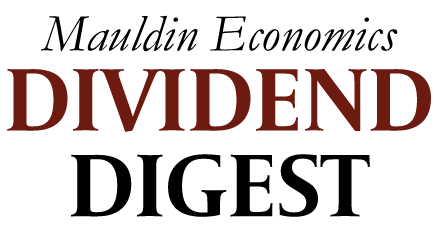
Two Simple Ways to Invest in Private Companies
-
 Kelly Green
Kelly Green
- |
- May 8, 2024
- |
- Comments
Have you ever been curious about angel investing or venture capital investing?
An angel investor is an individual who provides financial backing to a startup or young company to help grow the business. Think about the popular television show Shark Tank. Entrepreneurs looking for funding pitch their businesses to a panel of five venture capitalists looking to take equity stakes in promising companies.
Venture capital involves a group of investors coming together to provide capital and usually operational assistance to companies. Venture capital firms pool the money from their partners and look for opportunities in promising small or startup companies. They are typically structured as investment funds.
Unless you’re an institution or a high-net-worth individual, these opportunities aren’t really available to you.
Generally, you need to be an accredited investor, meaning your net worth is over $1 million or your annual income was above $200,000 in each of the last two years. I know some of you qualify for accreditation and have invested in private equity before.
However, if you’re looking for a way to access private companies that requires less capital, those opportunities are out there. Let’s talk about two of them.
Publicly Traded Collections of Private Companies
This barrier to access isn’t a new issue. In 1980, Congress recognized that it would benefit private companies if they had greater access to public capital. That’s where Business Development Companies (BDCs) come in. They were created in the 1980 amendments to the Investment Company Act of 1940.
To qualify as a BDC, a company must invest at least 70% of its assets in private or public US firms with a market value of less than $250 million. This requirement meant BDCs would build a portfolio of smaller or developing companies or those in financial distress.
|
BDCs then trade on a public exchange, giving investors access to companies that would otherwise be off-limits. BDCs often pay higher dividends as they are considered passthrough entities. This means most of their income must be passed through to shareholders in the form of distributions.
BDCs cannot just throw money at the companies they invest in. They are also required to assist with managing these companies. This helps small companies get prepared to go public—via an initial public offering, or IPO—or be acquired by a larger company. In the end, BDCs put more money in the pockets of more investors.
But that’s not the only way you can access private companies.
Private Companies with Preferred Shares
This isn’t the first time we’ve talked about preferred shares. You already know that they:
-
Have a set dividend;
-
Have no voting rights;
-
Have a “par value” or face value which tends to make them less volatile;
-
May have early redemption or “callable” features.
Like what you're reading?
Get this free newsletter in your inbox every Wednesday! Read our privacy policy here.
They act almost like a hybrid of a stock and debt (bond). The dividend is set, so you know exactly what you will get paid. This is more like a bond that a common stock.
Even better, you can find preferred shares for companies that don’t pay dividends on their common stock. And there are preferred shares for companies that don’t even have public common shares.
If preferred shares are hard to find through your brokerage account, Fidelity has a pretty good preferred stock screener tool that you can access even if you don’t have an account with them.
We have both BDCs and preferred shares in the Yield Shark portfolio. We have locked in some higher yields with our BDC positions in the Current Yield section of the portfolio. And we hold our preferred shares in the Bedrock Income section, set up to pay us for years to come.
To learn more about how Yield Shark can boost your income today and build wealth for tomorrow, see all the details here.
|
For more income, now and in the future,

Kelly Green
Tags
Suggested Reading...
|
|

 Kelly Green
Kelly Green


